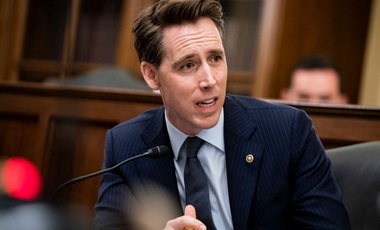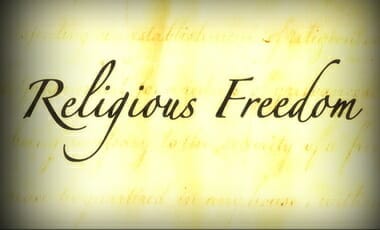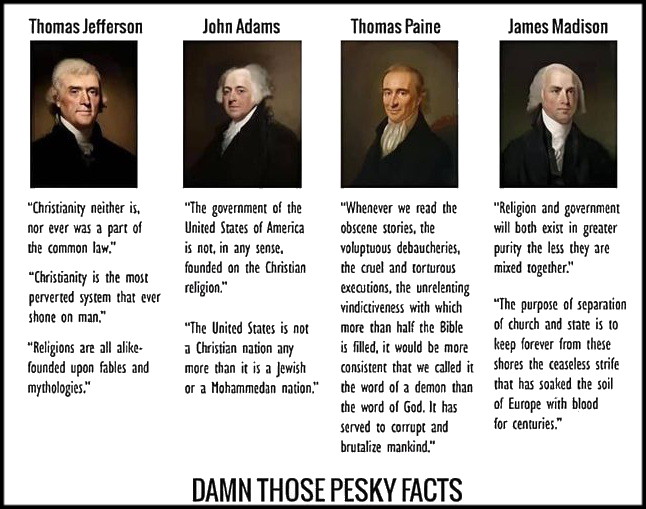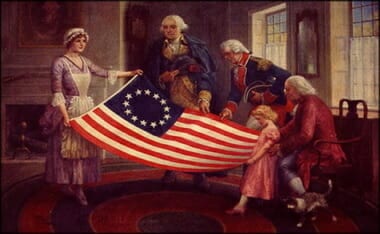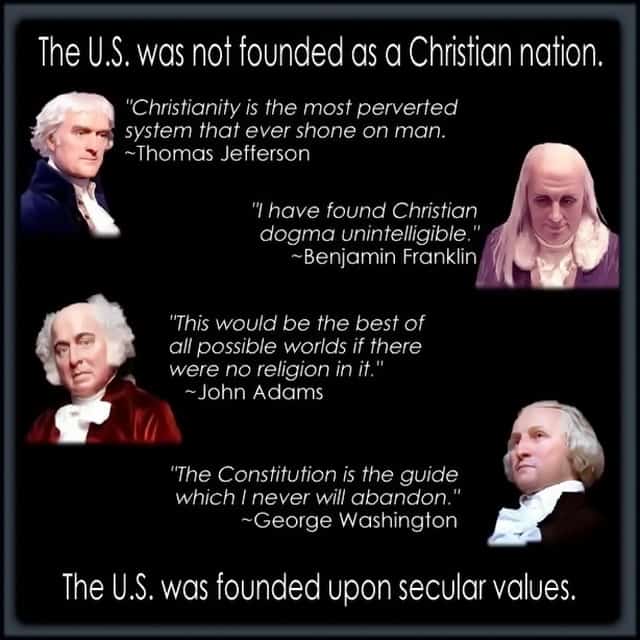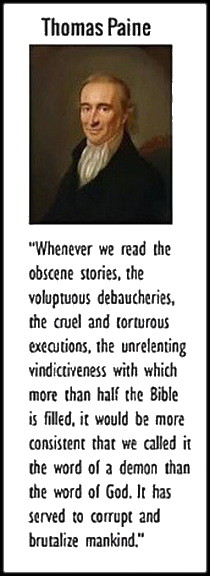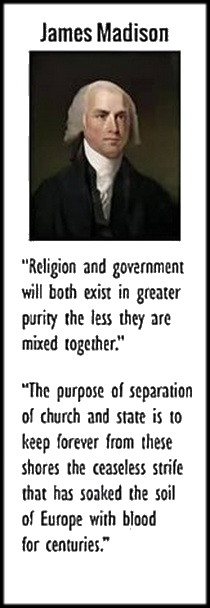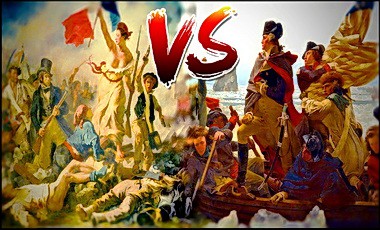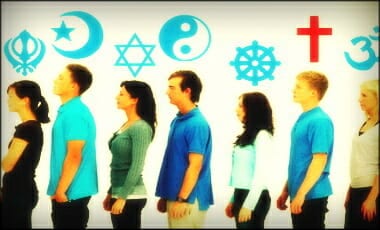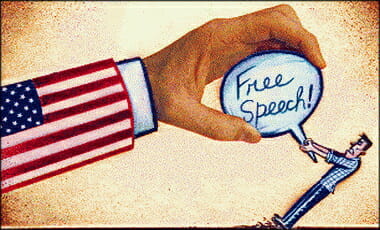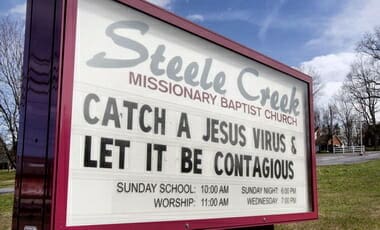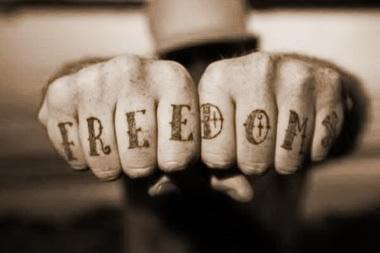GOD AND THE HUMAN SOUL: THE EXISTENCE OF THE UNIVERSE AND MORALITY
Belief in God and the immortality of the human soul was universal among the Founders, which is incontrovertibly evident from the most cursory review of their writings. While not all of them were orthodox Christians, their thoughts on atheism ranged from extreme caution to outright disdain. For them, belief in God was natural to man because it was in accordance with his nature, and they agreed with Tocqueville when he noted (while describing the virtual absence of atheism in America) that “men cannot detach themselves from religious beliefs except by some wrong-headed thinking, and by a sort of moral violence inflicted upon their true nature… Unbelief is an accident; faith is the only permanent state of mankind.”
They saw the fingerprints of God everywhere they looked, and their conclusion that He existed was not even necessarily dependent on the Bible or any specific set of religious dogma but on the very nature of the cosmos. Writing to his friend John Adams toward the end of his life, Jefferson explained his views: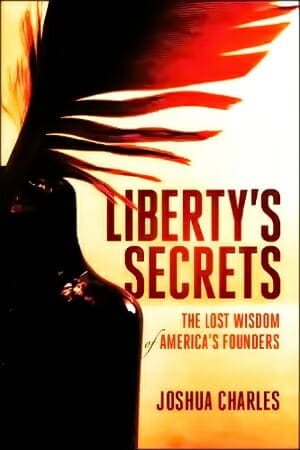
I hold (without appeal to revelation) that when we take a view of the Universe, in its parts general or particular, it is impossible for the human mind not to perceive and feel a conviction of design, consummate skill, and the indefinite power in every atom of its composition… We see, too, evident proofs of the necessity of a superintending power to maintain the Universe in its course and order… So irresistible are these evidences of an intelligent and powerful Agent that, of the infinite numbers of men who have existed through all time, they have believed, in the proportion of a million at least to unit, in the hypothesis of an eternal pre-existence of a creator, rather than in that of a self-existent Universe. Surely this unanimous sentiment renders this more probable than that of a few in the other hypothesis Even Thomas Paine, who in the second half of his life was an ardent opponent of orthodox Christianity (mostly Catholicism) and the clergy and did not believe the Bible was divinely inspired, wrote at the same time, “All the principles of science are of divine origin. Man cannot make or invent or contrive principles. He can only discover them, and he ought to look through the discovery to the Author.”
Paine criticized any teaching of “natural philosophy” (i.e., science) that asserted that the universe was simply “an accomplishment” (i.e., self-existent). He also criticized those teachers who “labor with studied ingenuity to ascribe everything they behold to innate properties of matter and jump over all the rest by saying that matter is eternal” and thereby encouraged the “evil” of atheism. “Instead of looking through the works of creation to the Creator Himself, they stop short and employ the knowledge they acquire to create doubts of His existence,” he lamented. “When we examine an extraordinary piece of machinery, an astonishing pile of architecture, a well-executed statue, or a highly-finished painting… our ideas are naturally led to think of the extensive genius and talent of the artist. When we study the elements of geometry, we think of Euclid. When we speak of gravitation, we think of Newton. How, then, is it that when we study the works of God in creation, we stop short and do not think of God?”
For these reasons, among others, Jefferson rejected being an atheist, “which,” as he put it, “I can never be.” His friend John Adams noted, “I never heard of an irreligious character in Greek or Roman history, nor in any other history, nor have I known one in life who was not a rascal. Name one if you can, living or dead.”” Nor did the Founders see science and religion as opposed to one another, as is all too common today. Rather, as President Adams asserted in a letter to university students, they were not only mutually compatible, but mutually necessary for one another: “When you look up to me with confidence as the patron of science, liberty, and religion, you melt my heart. These are the choicest blessings of humanity; they have an inseparable union. Without their joint influence no society can be great, flourishing, or happy.”
Just as much as the existence of God was essential to their understanding of the physical constitution of the universe, its combination with their belief in the immortality of the soul was crucial to their understanding of the moral constitution of the world, as it was the means by which God judged the good and evil acts committed in this life, whether noticed by man or not. Tocqueville ascribed a great deal of the accomplishments of the Puritans/Pilgrims and their progeny (the Founders) to this belief, which he described as so “indispensable to man’s greatness that its effects are striking,” for it kept him morally anchored, never able to escape ultimate justice. It was for this reason that the Founders considered belief in God as the cornerstone of all morality, but not because man could do no good apart from God commanding him to do so. Quite the contrary: part of their conception of the “law of nature and nature’s God” was the idea that all men had at least portions of this law inscribed into their very being, and that most men knew the basics of right and wrong because God had given them a conscience. The problem was that, because of their fallen nature, they did not obey their consciences as they should. Adams elaborated:
The law of nature would be sufficient for the government of men if they would consult their reason and obey their consciences. It is not the fault of the law of nature, but of themselves, that it is not obeyed; it is not the fault of the law of nature that men are obliged to have recourse to civil government at all, but of themselves; it is not the fault of the ten commandments, but of themselves, that Jews or Christians are ever known to steal, murder, covet, or blaspheme. But the legislator who should say the law of nature is enough, if you do not obey it, it will be your own fault, therefore no other government is necessary, would be thought to trifle.
This brings us to a very important fact that we must remember when it comes to the Founders: they did not believe that religion made men good, but rather that it provided the best encouragement and incentive to be good, for it taught them that their choices had consequences in eternity, not just in the moment. Even if consequences could be avoided in the now, God would exact justice in the hereafter.
This had been a Judeo-Christian teaching from time immemorial and was well known to the Founders. The problem was not that man had no knowledge of good and evil and therefore needed a religious commandment to tell him, but rather that human nature commonly bowed to the dictates of the passions, rather than reason, and thereby abandoned conscience and committed evil anyway. The Founders realized that our human nature could, and often did, pervert the plain dictates of conscience, allowing us to convince ourselves that right is wrong and wrong is right if it suits our own desires. As Adams noted, “Human reason and human conscience, though I believe there are such things, are not a match for human passions, human imaginations, and human enthusiasm.” Our passions would corrupt our minds, our minds would justify our passions, and in turn our passions would become even more corrupt, a deadly cycle with horrific consequences for individuals and society. “Our passions, ambition, avarice, love, resentment, etc. possess so much metaphysical subtlety and so much overpowering eloquence that they insinuate themselves into the understanding and the conscience and convert both to their party,” Adams wrote. “And I may be deceived as much as any of them when I say that power must never be trusted without a check.”
That “check,” at least as far as voluntary self-restraint was concerned, was religion. The Founders understood that mankind’s capacity for self-delusion was boundless; therefore, moral obligations must be placed on a divine rather than a humanistic footing if anyone could assert any truth or notion of right and wrong at all. It was for this reason that religious commandments such as “do not murder,” “do not steal,” and “do not commit adultery” were necessary, not because man was completely incapable of avoiding these sins without God commanding him to, but because, since He had commanded them, man had no intellectual excuse for ever allowing his passions or personal desires to blind his judgment and excuse him of his moral obligations. Religion thus anchored the definition of morality on God and asserted its obligations on man by acting as a powerful regulator of the inherently negative aspects of human nature. James Madison explained the importance of this truth: “The belief in a God All Powerful wise and good, is so essential to the moral order of the world and to the happiness of man, that arguments which enforce it cannot be drawn from too many sources nor adapted with too much solicitude to the different characters and capacities to be impressed with it.”
Adams asserted the same thing and specifically acknowledged that Judaism, through the Bible, had bequeathed to the world what he considered the most essential ingredient of human civilization:
I will insist that the Hebrews have done more to civilize men than any other nation. If I were an atheist, and believed in blind eternal fate, I should still believe that fate had ordained the Jews to be the most essential instrument for civilizing the nations. If I were an atheist of the other sect, who believe or pretend to believe that all is ordered by chance, I should believe that chance had ordered the Jews to preserve and propagate to all mankind the doctrine of a supreme, intelligent, wise, almighty sovereign of the universe, which I believe to be the great essential principle of all morality, and consequently of all civilization.
For the Founders, the most effective catalyst of virtue was religion, for it reminded man that he is not God and he therefore cannot shape morality according to his own selfish desires. It was the subversion of this principle that they identified as the cause behind the American and French Revolutions taking such radically different courses: it was ultimately a difference of theology.
GOD AND THE AMERICAN AND FRENCH REVOLUTIONS
The Founders believed in the existence of a God, which they deemed the most rational basis for the existence of the universe, morality, and reason itself. The French Revolution was predicated on almost the exact opposite idea.
While many today assume that the notion of blind chance being the operative force in the universe’s creation and development arrived on the scene with Charles Darwin, this is not the case. In fact, it was a notion quite popular among many of the continental European intellectuals of the time, most of whom were French, and most of whom tended to be atheists and/or materialists (which were practically the same). They contended that the universe had not been created but had either existed eternally or was the result of inherent properties in matter itself. But among the French intelligentsia, the one who had the most profound effect on the Founders, Montesquieu, directly contradicted this position in his famous work, The Spirit of the Laws: “Those who have said that a blind fate has produced all the effects that we see in the world have said a great absurdity,” he wrote, “for what greater absurdity is there than a blind fate that could have produced intelligent beings?”
For Montesquieu and the Founders, the universe was simply too full of information, order, and harmony to ascribe it to blind chance. “What is chance?” asked Adams. “It is motion; it is action; it is event; it is phenomenon without cause. Chance is no cause at all; it is nothing.”
In addition to their denial, or at least extreme doubt of the existence of a Creator, many of the French intellectuals in like manner either doubted or denied the existence and immortality of the human soul. They therefore denied the two theological pillars upon which the Founders based their ideas of virtue, and as such, it was no surprise that the French Revolution, which claimed to be the heir of the American Revolution, devolved into a bloodbath of violence and oppression unrestrained by any religious principle.
While both revolutions were similar in their assertion of human rights, they offered fundamentally different explanations of the origin of such rights. The American Revolution was premised on men being “endowed by their Creator with certain unalienable rights,” while the French Revolution asserted man’s rights were based purely on reason, apart from any notions of divinity or religion. A statue of a deified “Reason” was erected in the Notre Dame cathedral in Paris, and the revolution was predicated upon principles that were explicitly and directly opposed to religion, Christianity in particular. Adams noted the differences between the two revolutions when he wrote to his friend Richard Price that “Diderot and D’Alembert, Voltaire and Rousseau,” all French atheists and materialists, “have contributed to this great event more than Sidney, Locke, or Hoadly,” English political philosophers who explicitly asserted that the “laws of nature and nature’s God” were the foundation of man’s rights and moral obligations, and who had a profound impact on the American Revolution. The French, on the other hand, based man’s rights on the consensus of “the nation.” The rights of man were what man, through the nation, had decided they would be. For this reason, Adams admitted to Price as early as 1790, “I own to you, I know not what to make of a republic of thirty million atheists,” and he predicted there would be rampant violence and bloodshed.
But that was not all. Several of the Founders, Adams in particular, believed that the principles of the French Revolution not only directly undermined the basis of human rights and obligations but also destroyed the very idea of human liberty. If man was simply matter in motion, then his entire destiny had already been determined by physical laws and constants (today known as “determinism”), making liberty a meaningless idea. And yet, this was the view of many of the leading French intellectuals. “And what was their philosophy?” Adams inquired:
Atheism—pure, unadulterated atheism…. The universe was matter only, and eternal. Spirit was a word without a meaning. Liberty was a word without a meaning. There was no liberty in the universe; liberty was a word void of sense. Every thought, word, passion, sentiment, feeling, all motion and action was necessary [determinism]. All beings and attributes were of eternal necessity; conscience, morality, were all nothing but fate. This was their creed, and this was to perfect human nature, and convert the earth into a paradise of pleasure… Why, then, should we abhor the word “God,” and fall in love with the word “fate”? We know there exists energy and intellect enough to produce such a world as this, which is a sublime and beautiful one, and a very benevolent one, notwithstanding all our snarling; and a happy one, if it is not made otherwise by our own fault.
Alexander Hamilton, who described the French Revolution as “the most cruel, sanguinary, and violent that ever stained the annals of mankind,” also predicted its failure due to the fact that it was explicitly
opposed to Christianity, “a state of things which annihilates the foundations of social order and true liberty, confounds all moral distinctions and substitutes to the mild and beneficent religion of the Gospel a gloomy, persecuting, and desolating atheism:’
It was precisely because the French Revolution rejected the Judeo-Christian notion of the fallen nature of man in exchange for the idea that he could be perfected by reason that they engaged in the wanton violence and cruelty of the guillotine: it was all worth it because they were creating a new, ideal world that had to be purged of its impure elements.
The French Revolution was thereby founded on principles that fundamentally contradicted the divine basis of the existence of the universe, man’s rights, his moral obligations, and his very liberty, upon which the Founders, partaking of both the classical and Judeo-Christian tradition, asserted them. With God removed, several of the Founders, Adams in particular, predicted the French Revolution would operate according to the bloody principles of “might makes right.” “A nation of atheists,” he had warned, would likely lead to “the destruction of a million of human beings.” Adams explained his prophecy of a forthcoming deluge of blood in biblical terms and ascribed it to the utter rejection of religion by the leaders of the French Revolution:
The temper and principles prevailing at present in that quarter of the world have a tendency to as general and total a destruction as ever befell Tyre and Sidon[,] Sodom and Gomorrah. If all religion and governments, all arts and sciences are destroyed, the trees will grow up, cities will molder into common earth, and a few human beings may be left naked to chase the wild beasts with bows and arrows…. I hope in all events that religion and learning will find an asylum in America.
In this, he disagreed (at the time) with Jefferson. But even Jefferson was forced to admit decades later, after the Reign of Terror, the Napoleonic Wars, and the other violent outbursts that came out of the French Revolution, that Adams had been completely right in his assessment, acknowledging, “Your prophecies… proved truer than mine.” When Jefferson asked Adams why he had predicted what he did, Adams explained that the power of God had been replaced by the arrogant, usurping power of man, and conscience was thereby disconnected from its transcendent anchors. Thus, those in power believed whatever they did was moral: “Power always sincerely, conscientiously, de tres bon foi [“in very good faith”], believes itself right. Power always thinks it has a great soul, and vast views, beyond the comprehension of the weak, and that it is doing God’s service, when it is violating all his laws.” It was for this reason that, as much as religion had been abused for centuries in European history, Adams argued it could not compare with the atrocities committed in the name of “Liberté, Egalité, Fraternité” during the French Revolution: “It is a serious problem to resolve whether all the abuses of Christianity, even in the darkest ages when the Pope deposed princes and laid nations under his interdict, were ever so bloody and cruel, ever bore down the independence of the human mind with such terror and intolerance, or taught doctrines which required such implicit credulity to believe, as the present reign of pretended philosophy in France.”
As president, Adams had to deal directly with the revolutionary French government and easily noted the difference between an American society that assented to general religious principles and a French society that rejected them:
You may find the moral principles, sanctified and sanctioned by religion, are the only bond of union, the only ground of confidence of the people in one another, of the people in the government, and the government in the people. Avarice, ambition, and pleasure, can never be the foundations of reformations or revolutions for the better. These passions have dictated the aim at universal domination, trampled on the rights of neutrality, despised the faith of solemn contracts, insulted ambassadors, and rejected offers of friendship.
For the Founders, the purpose of reason—which Adams referred to as “a revelation from its maker” and Jefferson as an “oracle given you by heaven”-was to better align human actions with the “law of nature and nature’s God” by the taming of human passions and the application of knowledge. The leaders of the French Revolution believed precisely the opposite, that God didn’t really exist (and if He did, He was largely irrelevant), and that reason was man’s alone, and thus his to utilize toward whatever ends he himself determined. Though the Founders knew perfection “falls not to the share of mortals,” the French believed that man could be perfected through reason, and therefore any barriers to creating the world of their dreams needed to be destroyed, for this was tantamount to obstructing man’s perfection. The differences between the two revolutions thus turned out to be theological at root, and for this reason, while on the surface they were superficially similar, they were in fact fundamentally different, as Adams prophesied, other Founders criticized, and the facts of history verified.
Joshua Charles, Liberty’s Secrets: The Lost Wisdom of America’s Founders (Washington, DC: WND Books, 2015), 82-91.
